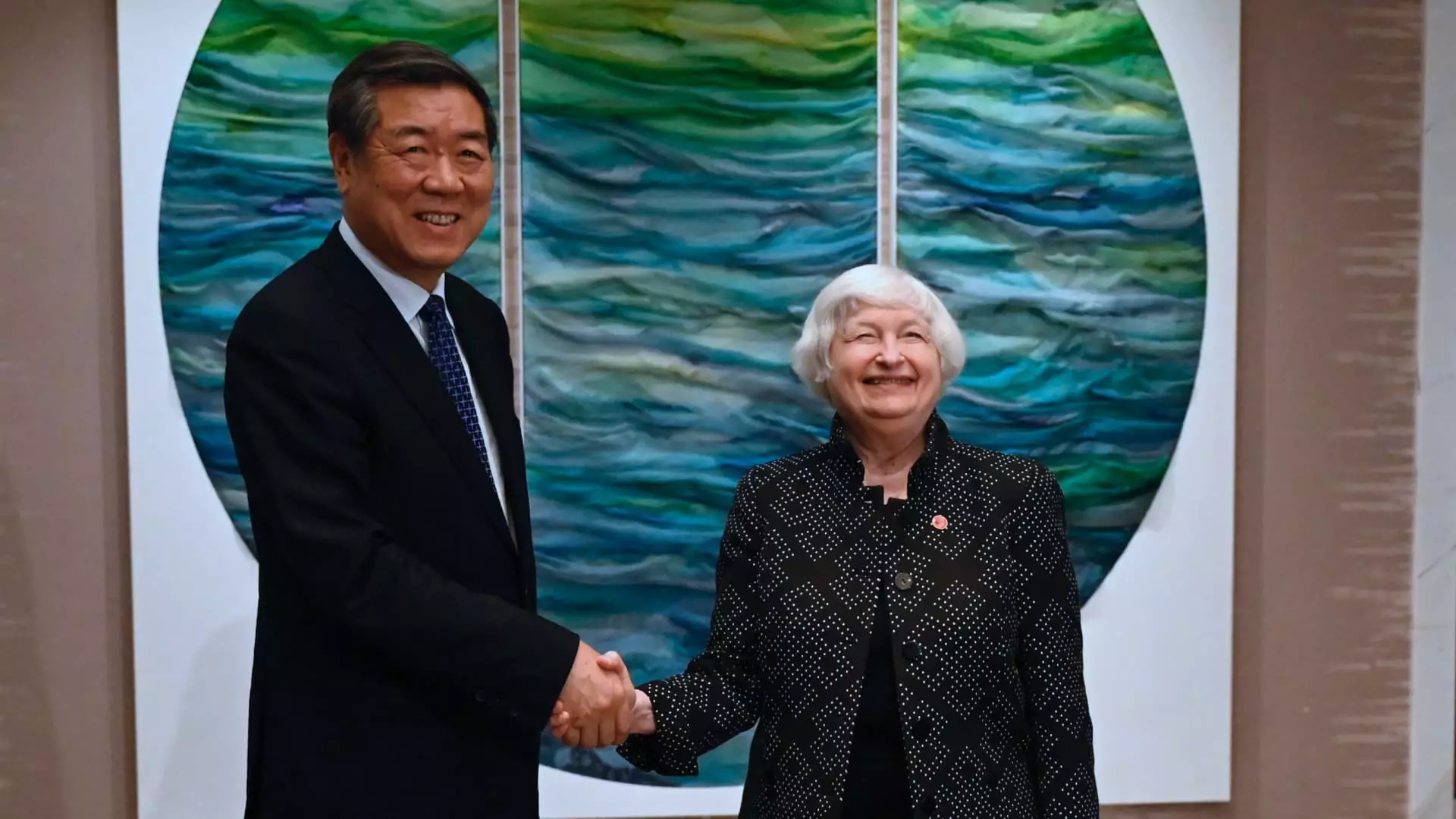Recent comments made by U.S. Treasury Secretary Janet Yellen regarding China’s excess manufacturing capacity have sparked controversy in the global economic arena. According to Chinese state media, Yellen’s remarks seem to be rehashing the “China threat” rhetoric and potentially laying the groundwork for more protectionist policies from the U.S. The editorial from Xinhua, a state news agency, criticized Yellen’s statements, claiming that they aim to undermine China’s domestic growth and international cooperation.
Xinhua’s editorial went on to suggest that instead of resorting to fear-mongering tactics, Washington should concentrate on fostering innovation and competitiveness within its own borders. Yellen’s concerns over the impact of China’s excess manufacturing capacity on the global economy were highlighted during her visit to Guangzhou, where she engaged with U.S. businesspeople. She specifically referenced China’s overproduction of electric vehicles, solar panels, semiconductors, and other goods that are saturating international markets and causing challenges for producers in other countries.
The editorial from Xinhua warned against the potential use of protectionist policies by the U.S. in response to China’s manufacturing practices. The mention of ‘Chinese overcapacity’ in the clean energy sector was interpreted as a possible pretext for implementing measures to safeguard U.S. companies. The editorial also brought attention to Washington’s tendency to invoke national security concerns when its economic supremacy is threatened, suggesting that protectionism could be a likely outcome of Yellen’s remarks.
Yellen’s Meetings in China
Yellen’s visit to China included meetings with Vice Premier He Lifeng and Guangdong Province Governor Wang Weizhong in Guangzhou. She is scheduled to continue her discussions in Beijing, where she will engage with officials such as Premier Li Qiang and People’s Bank of China Governor Pan Gongsheng. These interactions are expected to delve deeper into the economic issues raised by Yellen and explore potential avenues for collaboration between the U.S. and China in addressing concerns related to excess manufacturing capacity.

Leave a Reply